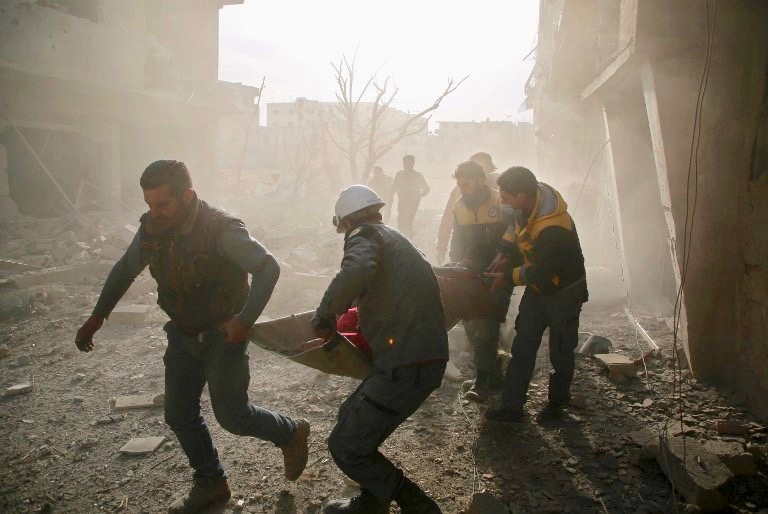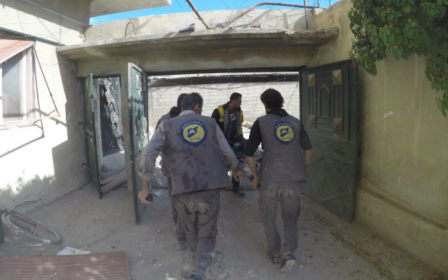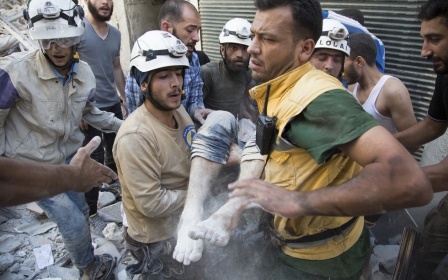First woman White Helmets rescuer killed in Syria

The White Helmets rescue force suffered its first woman fatality on Saturday, after air strikes hit a rebel-held town in the battered Idlib province of northwest Syria, the group said.
It said rescue worker Sobhiya al-Assad was killed along with several members of her family when bombing raids hit their house in the town of Kafr Sejna.
"She's the first female #WhiteHelmet volunteer to be killed. Her service will never be forgotten," the rescue group said.
Idlib, most of which is held by militants and allied rebels, has been regularly battered by Syrian government air strikes in recent months.
The White Helmets have rescued thousands of civilians trapped under the rubble after air strikes or caught up in fighting along various fronts of Syria's conflict.
A vast majority of its 3,700 members are men, but it does include woman rescuers.
The group emerged in 2013, when Syria's conflict was nearing its third year, and operates in battered opposition-held zones.
Since their founding, more than 200 of their volunteers have died and another 500 have been injured.
The group's motto - "To save one life is to save all of humanity" - is drawn from a verse in the Koran. The White Helmets insist they treat all victims, regardless of religion.
Trained abroad
Some members have received training abroad, returning to instruct colleagues on search-and-rescue techniques.
The group receives funding from a number of governments, including Britain, Germany and the United States, but also solicits individual donations to purchase equipment, including their signature hard hats that cost $145 each.
Last year, a Netflix documentary called The White Helmets won an Academy Award for best short documentary.
A second film on the group, named Last Men in Aleppo, was nominated for an Oscar in 2018.
Middle East Eye propose une couverture et une analyse indépendantes et incomparables du Moyen-Orient, de l’Afrique du Nord et d’autres régions du monde. Pour en savoir plus sur la reprise de ce contenu et les frais qui s’appliquent, veuillez remplir ce formulaire [en anglais]. Pour en savoir plus sur MEE, cliquez ici [en anglais].




